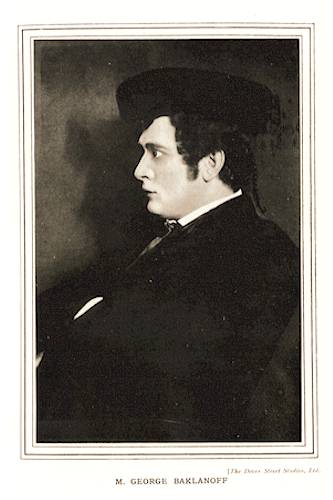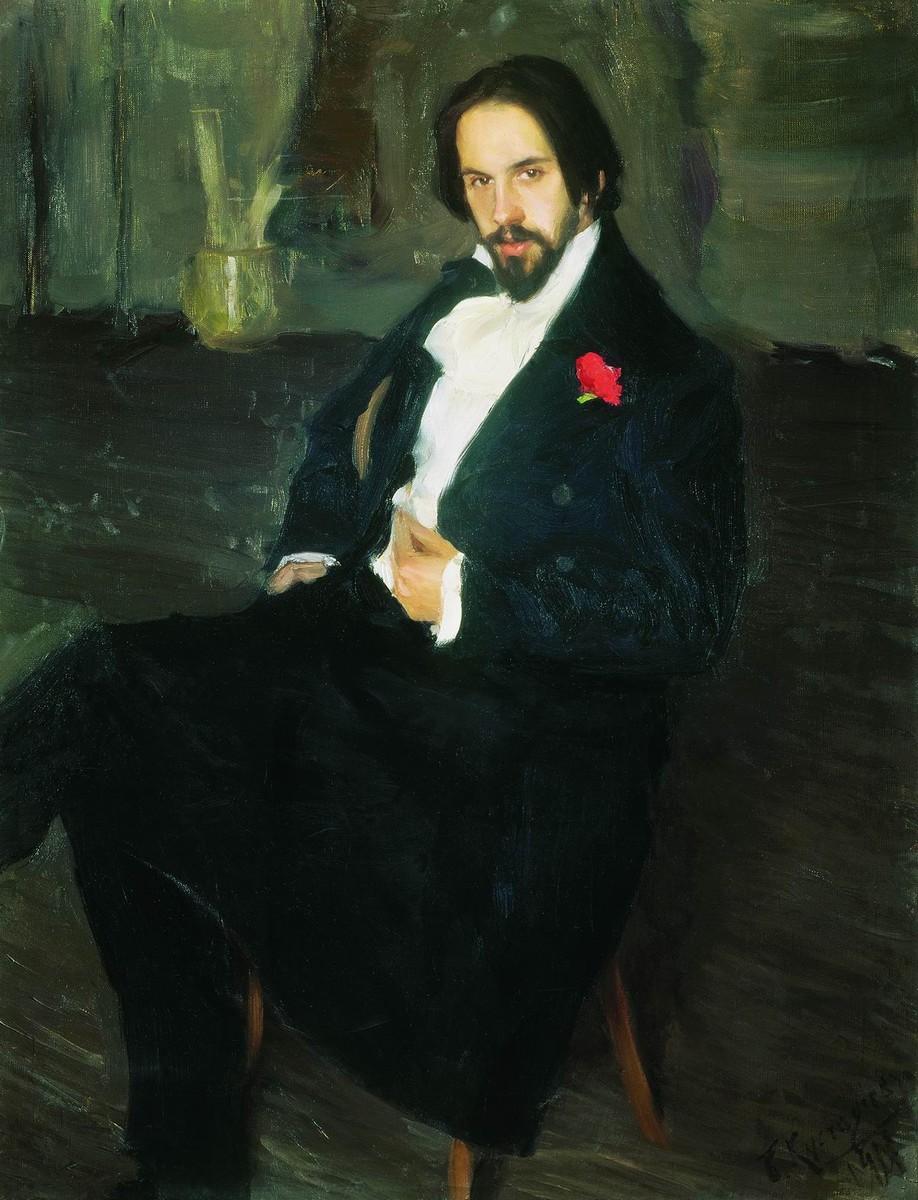|
Zimin Opera
The Zimin Opera was founded by the Russian entrepreneur Sergei Zimin in Moscow, Russia in 1903. The company staged the premieres of such operas as Rimsky-Korsakov's '' Golden Cockerel'', Gretchaninoff's ''Beatris Sister'' and Ippolitov-Ivanov's ''Izmena''. It also staged the Russian premieres of Puccini's '' La fanciulla del West'', Wagner's ''Die Meistersinger von Nürnberg'', Mascagni's '' Iris'' and Leoncavallo's ''Zazà''. Many well-known Russian and Italian opera singers performed with the company, including Georges Baklanoff, Lina Cavalieri, Feodor Chaliapin, Leonid Sobinov, Valeria Barsova and Titta Ruffo. Stage sets and costumes were designed by such Russian artists as Ivan Bilibin, Viktor Vasnetsov and Nicholas Roerich Nicholas Roerich (; October 9, 1874 – December 13, 1947), also known as Nikolai Konstantinovich Rerikh (russian: link=no, Никола́й Константи́нович Ре́рих), was a Russian painter, writer, archaeologist, the ... [...More Info...] [...Related Items...] OR: [Wikipedia] [Google] [Baidu] |
Georges Baklanoff
Georgy Andreyevich Baklanoff, known as Georges Baklanoff (sometimes spelled Baklanov; 6 December 1938) was a Russian operatic baritone who had an active international career from 1903 until his death in 1938. Possessing a powerful and flexible voice, he sang roles from a wide variety of musical periods and in many languages. He was also highly praised by audience and critics for his acting abilities. Baklanoff's early career was spent performing with major theatres in Russia; including the Bolshoi and Mariinsky theatres. In 1910 he began performing with important opera houses internationally, and became a member of both the Boston Opera Company (1910-1915) and the Vienna State Opera (1912-1914). From 1917-1928 he was the leading baritone in Chicago and in 1928-1929 he was a member of the Philadelphia Civic Opera Company. From 1932 until his death in 1938 he was a member of Theatre Basel. He also appeared as a guest artist with important theatres internationally. Early life, ... [...More Info...] [...Related Items...] OR: [Wikipedia] [Google] [Baidu] |
1917 Disestablishments In Russia
Events Below, the events of World War I have the "WWI" prefix. January * January 9 – WWI – Battle of Rafa: The last substantial Ottoman Army garrison on the Sinai Peninsula is captured by the Egyptian Expeditionary Force's Desert Column. * January 10 – Imperial Trans-Antarctic Expedition: Seven survivors of the Ross Sea party were rescued after being stranded for several months. * January 11 – Unknown saboteurs set off the Kingsland Explosion at Kingsland (modern-day Lyndhurst, New Jersey), one of the events leading to United States involvement in WWI. * January 16 – The Danish West Indies is sold to the United States for $25 million. * January 22 – WWI: United States President Woodrow Wilson calls for "peace without victory" in Germany. * January 25 ** WWI: British armed merchantman is sunk by mines off Lough Swilly (Ireland), with the loss of 354 of the 475 aboard. ** An anti-prostitution drive in San Francisco occurs, and ... [...More Info...] [...Related Items...] OR: [Wikipedia] [Google] [Baidu] |
Musical Groups Established In 1903 , the ability to perceive music or to create music
*
{{Music disambiguation ...
Musical is the adjective of music. Musical may also refer to: * Musical theatre, a performance art that combines songs, spoken dialogue, acting and dance * Musical film and television, a genre of film and television that incorporates into the narrative songs sung by the characters * MusicAL, an Albanian television channel * Musical isomorphism, the canonical isomorphism between the tangent and cotangent bundles See also * Lists of musicals * Music (other) * Musica (other) * Musicality Musicality (''music-al -ity'') is "sensitivity to, knowledge of, or talent for music" or "the quality or state of being musical", and is used to refer to specific if vaguely defined qualities in pieces and/or genres of music, such as melodiousness ... [...More Info...] [...Related Items...] OR: [Wikipedia] [Google] [Baidu] |
Theatres In Moscow
Theatre or theater is a collaborative form of performing art that uses live performers, usually actors or actresses, to present the experience of a real or imagined event before a live audience in a specific place, often a stage. The performers may communicate this experience to the audience through combinations of gesture, speech, song, music, and dance. Elements of art, such as painted scenery and stagecraft such as lighting are used to enhance the physicality, presence and immediacy of the experience. The specific place of the performance is also named by the word "theatre" as derived from the Ancient Greek θέατρον (théatron, "a place for viewing"), itself from θεάομαι (theáomai, "to see", "to watch", "to observe"). Modern Western theatre comes, in large measure, from the theatre of ancient Greece, from which it borrows technical terminology, classification into genres, and many of its themes, stock characters, and plot elements. Theatre artist Patrice Pa ... [...More Info...] [...Related Items...] OR: [Wikipedia] [Google] [Baidu] |
Music In Moscow
Music is generally defined as the art of arranging sound to create some combination of form, harmony, melody, rhythm or otherwise expressive content. Exact definitions of music vary considerably around the world, though it is an aspect of all human societies, a cultural universal. While scholars agree that music is defined by a few specific elements, there is no consensus on their precise definitions. The creation of music is commonly divided into musical composition, musical improvisation, and musical performance, though the topic itself extends into academic disciplines, criticism, philosophy, and psychology. Music may be performed or improvised using a vast range of instruments, including the human voice. In some musical contexts, a performance or composition may be to some extent improvised. For instance, in Hindustani classical music, the performer plays spontaneously while following a partially defined structure and using characteristic motifs. In modal ja ... [...More Info...] [...Related Items...] OR: [Wikipedia] [Google] [Baidu] |
Nicholas Roerich
Nicholas Roerich (; October 9, 1874 – December 13, 1947), also known as Nikolai Konstantinovich Rerikh (russian: link=no, Никола́й Константи́нович Ре́рих), was a Russian painter, writer, archaeologist, theosophist, philosopher, and public figure. In his youth he was influenced by Russian Symbolism, a movement in Russian society centered on the spiritual. He was interested in hypnosis and other spiritual practices and his paintings are said to have hypnotic expression. Born in Saint Petersburg, to a well-to-do notary public Baltic German father and to a Russian mother, Roerich lived in various places in the world until his death in Naggar, Himachal Pradesh, India. Trained as an artist and a lawyer, his main interests were literature, philosophy, archaeology, and especially art. Roerich was a dedicated activist for the cause of preserving art and architecture during times of war. He was nominated several times to the longlist for the Nobel Peac ... [...More Info...] [...Related Items...] OR: [Wikipedia] [Google] [Baidu] |
Viktor Vasnetsov
Viktor Mikhaylovich Vasnetsov (russian: Ви́ктор Миха́йлович Васнецо́в; May 15 ( N.S.), 1848 – July 23, 1926) was a Russian artist who specialized in mythological and historical subjects. He is considered the co-founder of Russian folklorist and romantic nationalistic painting (see also neo-romanticism), and a key figure in the Russian revivalist movement. Biography Childhood (1848–1858) Viktor Vasnetsov was born in the remote village of Lopyal in Vyatka Governorate in 1848, the second of the seven children (his only sister died 4 months after her birth). His father Mikhail Vasilievich Vasnetsov (1823–1870), known to be philosophically inclined, was a member of the priesthood, and a scholar of the natural sciences and astronomy. His grandfather was an icon painter. Two of Mikhail Vasnetsov's six sons, Viktor and Apollinary, became remarkable painters, three becoming schoolteachers and one a Russian folklorist. It was in Lopyal that Viktor sta ... [...More Info...] [...Related Items...] OR: [Wikipedia] [Google] [Baidu] |
Ivan Bilibin
Ivan Yakovlevich Bilibin ( rus, Ива́н Я́ковлевич Били́бин, p=ɪˈvan ˈjakəvlʲɪvʲɪt͡ɕ bʲɪˈlʲibʲɪn; – 7 February 1942) was a Russian illustrator and stage designer who took part in the ''Mir iskusstva'', contributed to the Ballets Russes, co-founded the Union of Russian Artists (russian: Сою́з ру́сских худо́жников) and from 1937 was a member of the Artists' Union of the USSR. Ivan Bilibin gained popularity with his illustrations of Russian folk tales and Slavic folklore. Throughout his career he was inspired by the art and culture of Rus'. Biography Ivan Bilibin was born in Tarkhovka, a suburb of St. Petersburg. He studied in 1898 at Anton Ažbe Art School in Munich, where he was heavily influenced by Art Nouveau and the German satirical journal ''Simplicissimus'', and then under Ilya Repin in St. Petersburg.Janina Orlov, 'Ivan Bilibin' in Donald Haase, ''The Greenwood Encyclopedia of Folktales and Fairy Tales: A-F'' ... [...More Info...] [...Related Items...] OR: [Wikipedia] [Google] [Baidu] |
Artist
An artist is a person engaged in an activity related to creating art, practicing the arts, or demonstrating an art. The common usage in both everyday speech and academic discourse refers to a practitioner in the visual arts only. However, the term is also often used in the entertainment business, especially in a business context, for musicians and other performers (although less often for actors). "Artiste" (French for artist) is a variant used in English in this context, but this use has become rare. Use of the term "artist" to describe writers is valid, but less common, and mostly restricted to contexts like used in criticism. Dictionary definitions The '' Oxford English Dictionary'' defines the older broad meanings of the term "artist": * A learned person or Master of Arts. * One who pursues a practical science, traditionally medicine, astrology, alchemy, chemistry. * A follower of a pursuit in which skill comes by study or practice. * A follower of a manual art, such a ... [...More Info...] [...Related Items...] OR: [Wikipedia] [Google] [Baidu] |
Titta Ruffo
Titta Ruffo (9 June 1877 – 5 July 1953), born as Ruffo Cafiero (double forename) Titta, was an Italian operatic baritone who had a major international singing career. Known as the "Voce del leone" ("voice of the lion"), he was greatly admired, even by rival baritones, such as Giuseppe De Luca, who said of Ruffo: "His was not a voice, it was a miracle" (although not often published is the second part of De Luca's conclusion "which he uffobawled away..."), and Victor Maurel, the creator of Verdi's Iago and Falstaff. Maurel said that the notes of Ruffo's upper register were the most glorious baritone sounds he had ever heard (see Pleasants, cited below). Indeed Walter Legge, the prominent classical record producer, went so far as to call Ruffo "a genius". Biography Born Ruffo Titta in Pisa (he reversed his forename and surname for the stage), Ruffo was the son of an engineer. He studied voice with several teachers. In Musical America, December 27, 1913, Ruffo wrote the f ... [...More Info...] [...Related Items...] OR: [Wikipedia] [Google] [Baidu] |
Valeria Barsova
Valeria Vladimirovna Barsova (russian: Вале́рия Влади́мировна Ба́рсова; Astrakhan, 13 June 1892 – Sochi, 13 December 1967), PAU, was a Russian operatic soprano, one of the leading lyric-coloratura sopranos of the first half of the 20th century in Russia. Life and career Valeria Barsova first studied the piano with Estonian composer Artur Kapp. She then studied singing at the Moscow Conservatory with Mazetti. In 1915, she was singing in a Moscow cabaret when she was noticed by Sergei Zimin, director of the Zimin Opera, where she made her operatic debut in 1917, as Gilda in ''Rigoletto''. Other roles at this theatre included; Susanna in ''Le nozze di Figaro'', Constance in ''Die Entführung aus dem Serail'', Rosina in ''Il barbiere di Siviglia'', the four heroines of '' Les contes d'Hoffmann'', Nedda in ''Pagliacci''. In 1919, she sang Rosina as a last minute replacement for prima-donna Antonina Nezhdanova, at the Hermitage Theatre in Saint Petersbu ... [...More Info...] [...Related Items...] OR: [Wikipedia] [Google] [Baidu] |




.jpg)


